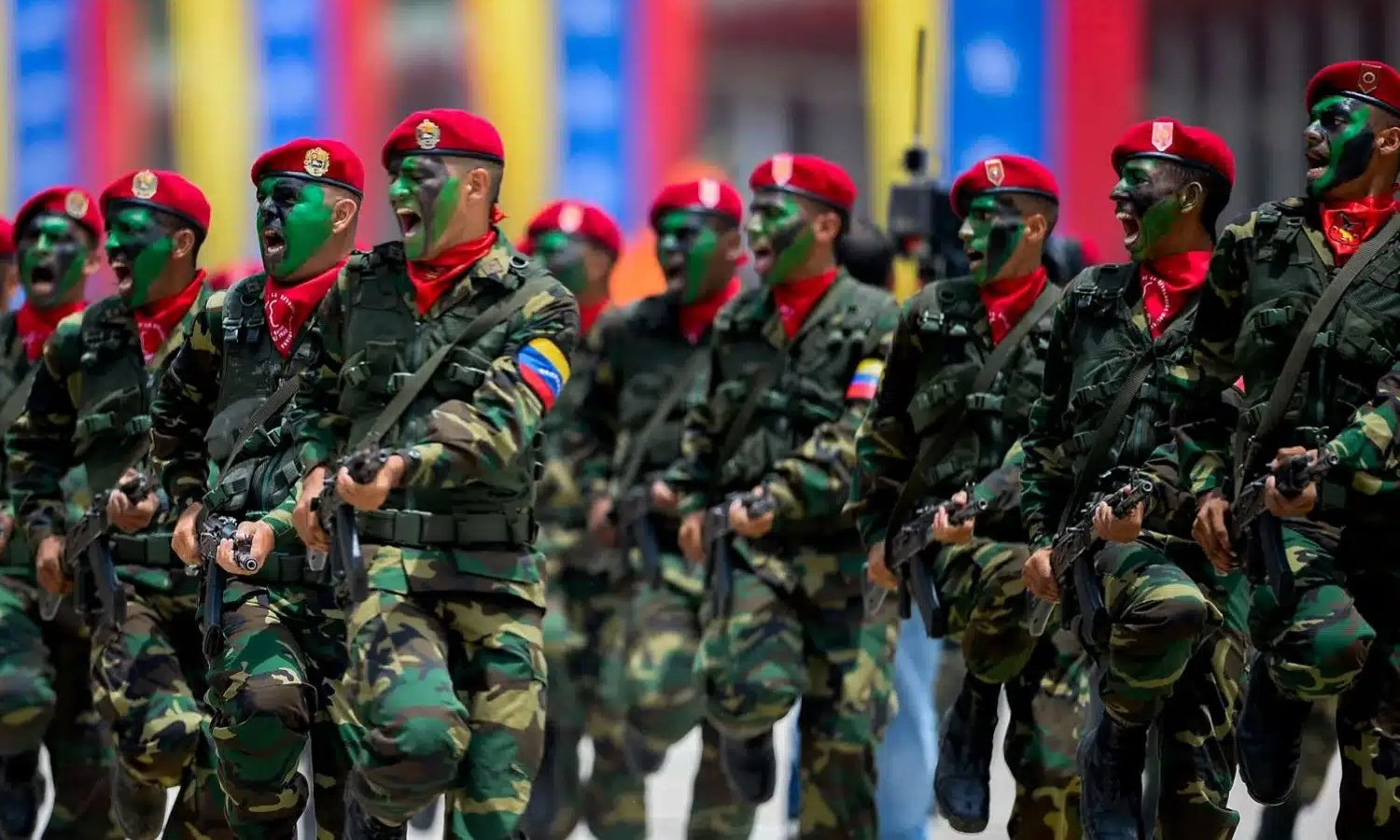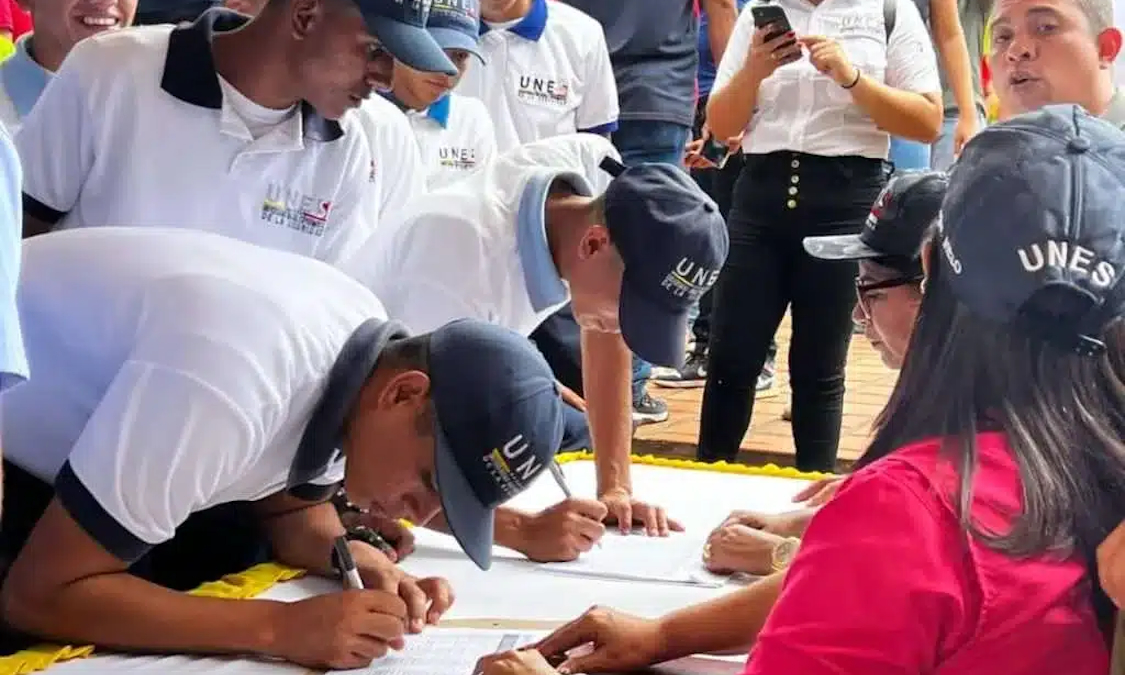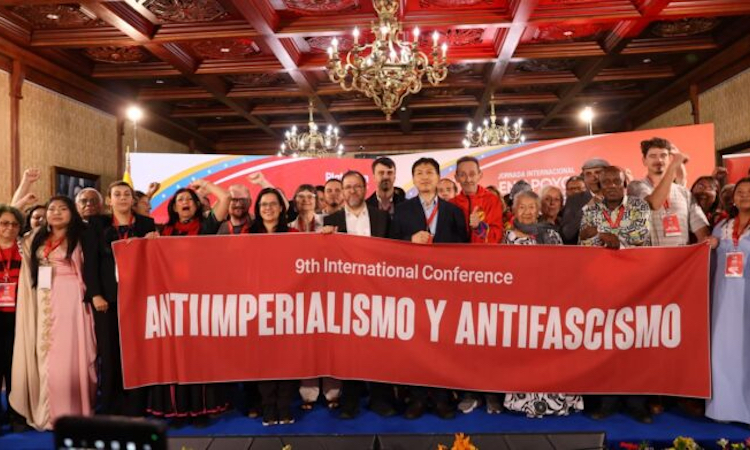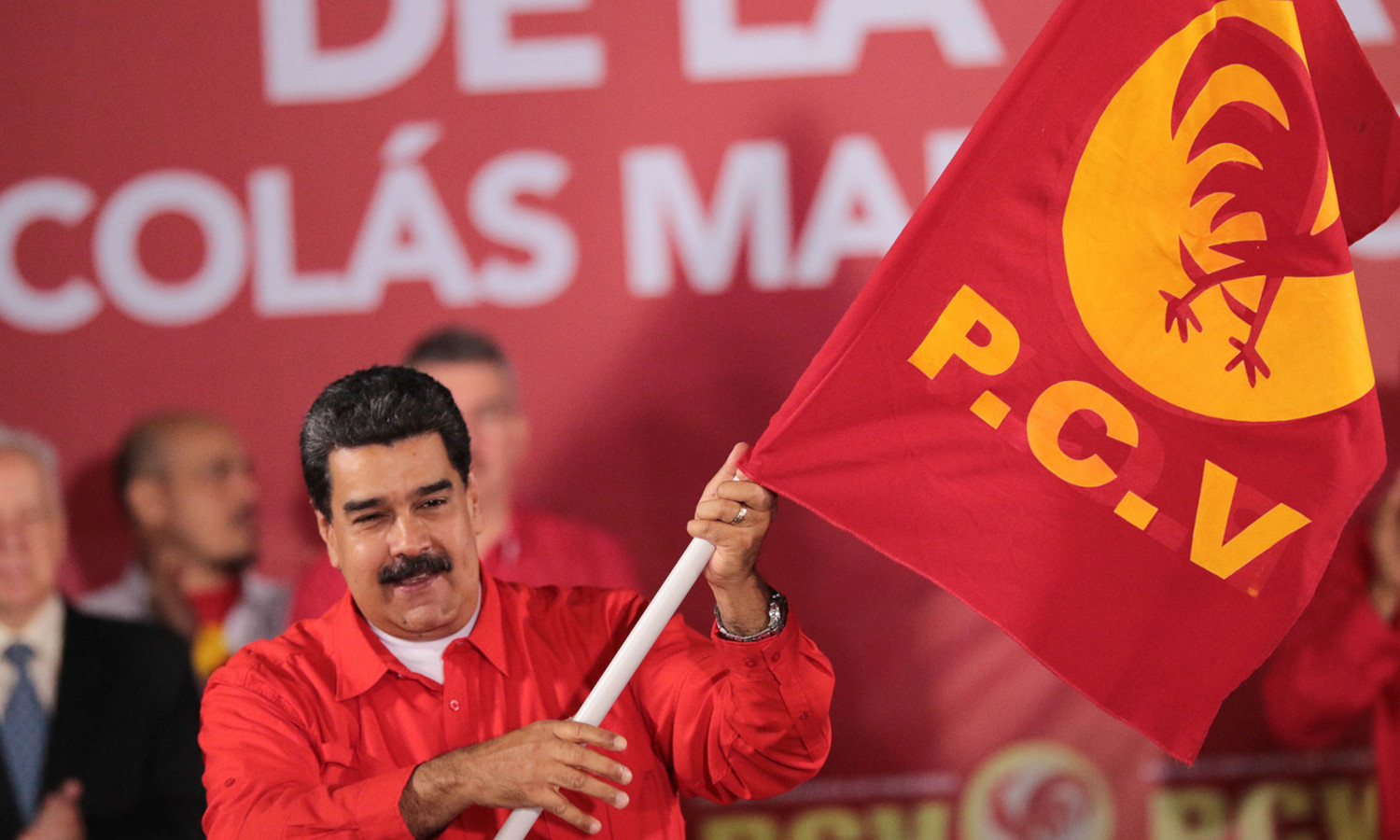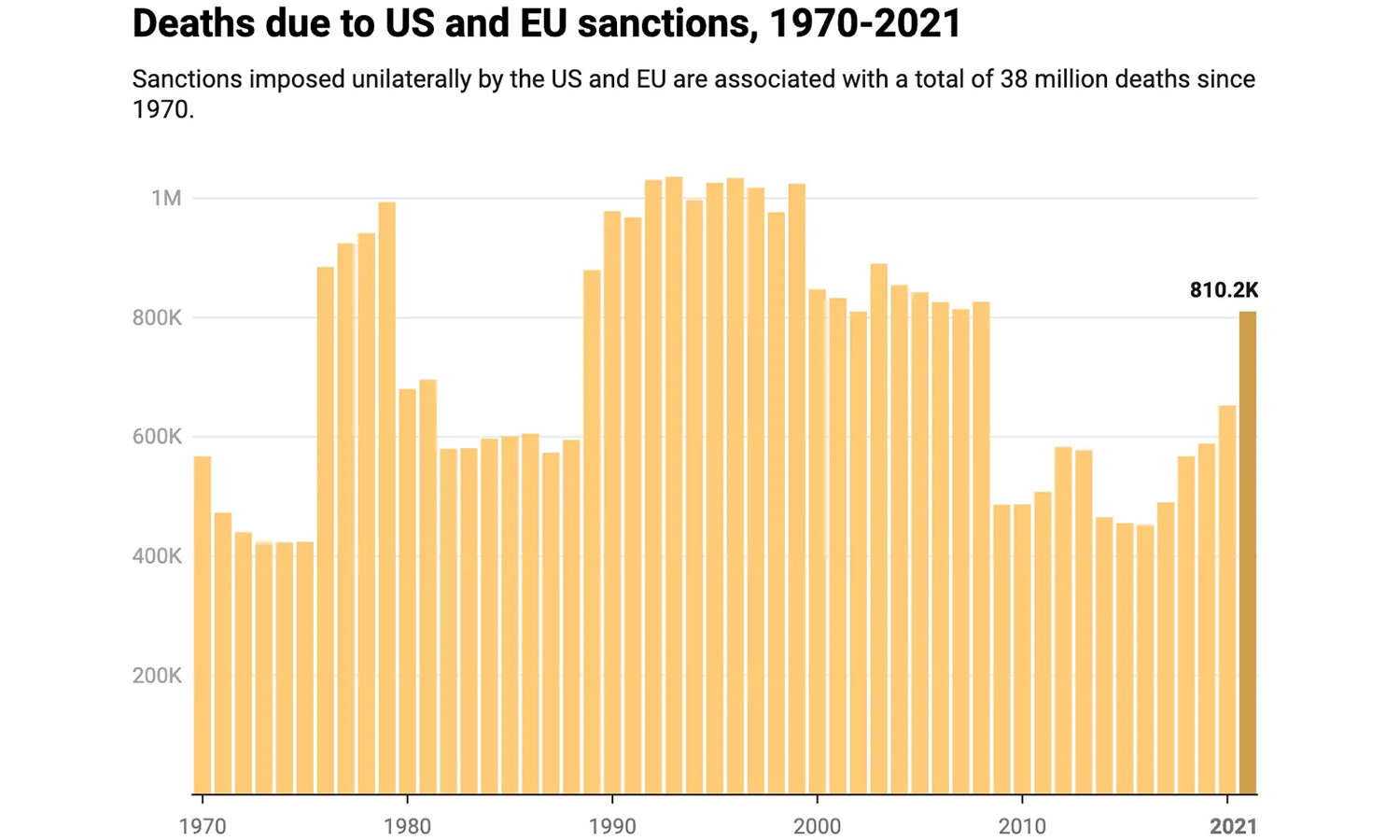The following paper was presented by Comrade Eleonore Koffi to the international conference of the World Anti-imperialist Platform, held in Caracas on 21 October 2025.
*****
Despite relentless attempts by the United States to asphyxiate the Bolivarian revolution and get its hands on Venezuela’s abundant resources, the heart of the country still beats strong thanks to the communes.
These popular self-management bodies, based on the idea of grassroots power, unite the people in local communities, where they govern themselves and manage their own problems. The call for “Comuna o nada” (commune or nothing) launched in 2012 by President Hugo Chávez shortly before his death was heard by all, and since then more than 4,000 communes have been founded across the country.
Western bourgeois like to describe their political system as the most democratic in the world, because every four or five years their populations are allowed to vote for a new leader and government. They present this alternating of governance between the two official parties of the bourgeoisie, represented in Britain by the Conservative party and the Labour party, as the pinnacle of democracy.
Today, the majority of the population in imperialist countries is coming to understand that the electoral process is a farce designed to pacify them. The outcome of elections is always the same: the Victory of Capital. Voter turnout in the last general election in the United Kingdom was 59.7 percent, one of the lowest since 1918. Even according to the rigged bourgeois polling companies, prime minister Sir Kier Starmer currently has a ‘popularity’ rating of 22 percent among the British population.
No sooner had he been elected that he and his Labour government, following the steps already taken by the previous Conservative government, began ruthlessly cracking down on the anti-genocide, pro-Palestinian popular movement in Britain. Since 7 October 2023, hundreds of thousands of people have been marching every month in the streets of London, and in cities up and down the country, to demand an end to their government’s military, political and economic support for the genocidal state of Israel.
These protestors, who number in the millions, are constantly labelled as “terrorists” and branded “unpatriotic” by the media and the government, and orders are given to the police to arrest and persecute any of them who can be singled out for such ‘special treatment’. In particular, those who might dare to bring to the demonstrators any real understanding of the true essence and role of zionism as a racist and supremacist tool of imperialist domination in the middle east.
Journalists, political activists, academics, doctors and others who have used social media or other means to spread awareness of the Israel’s crimes in Gaza, and to oppose the connections between the British political establishment and the imperialist-funded zionist lobbying machine, have been persecuted relentlessly. Many have been sacked by their employers, disciplined or disbarred by their professional bodies, arrested by police and detained while crossing borders. They have had their houses searched, their computers and phones seized and their activities and connections investigated under sweeping ‘anti-terror’ laws.
In recent months, Palestine Action, a direct-action group which targeted companies operating in Britain that are working to supply the Israeli war machine, was banned and designated a terrorist organisation. It is under this atmosphere of growing repression that the people of the world’s first bourgeois democracy now live.
Yet, according to the BBC and other bourgeois propaganda channels in Britain, it is not Britain but Venezuela that is one of the worst “dictatorships” in the world. President Nicolás Maduro (and not the economic sanctions imposed by the United States and its ‘democratic’ allies) is alleged to be solely responsible for all the ills afflicting Venezuelan society.
Bolivarian process serves the poor masses
But according to French journalist Maurice Lemoine: “The truth is that before the Bolivarian revolution, the Venezuelan people lived in abject poverty, with no access to education, medical care or even identity cards. For the state, the population did not exist.
“It was in 1999 that the Bolivarian revolution began to focus on the priorities of the people, bringing literacy programmes and health brigades to rural areas, as well as electricity, drinking water and housing. In addition to these considerable advances, Chávez created the famous communal councils … through which he re-politicised the people.”
Thanks to this process, workers, farmers, students, grandparents, neighbours and others are beginning to collectively establish themselves as a ‘new subject’. Inspired by the historical examples of the Paris Commune and the Russian revolution, the Venezuelan people are throwing themselves heart and soul into this new democratic project, where everyone’s voice finally counts.
“In the ramshackle barrios and deprived countryside, numerous Bolivarian circles, urban land committees, health committees, technical committees on water and electricity, neighbourhood associations, cooperatives and colectivos are springing up, creating a dynamic process of participation that allows each community to discuss its problems and bring them to the attention of the authorities.
“Entire battalions of women are involved in this vast movement. Since the advent of the revolution, their political participation has changed completely. And it has grown over time.” (Communes et communards du Venezuela, Medelu.org, 6 January 2025)
As we can see, a truly democratic process is taking place in Venezuela, a socialist model based on economic and political control by the people. This process is reinforced year after year by the encouragement and full support of the national government. After a national consultation in 2024, which gathered more than 36,000 local community projects, new central objectives named the 7T were announced.
According to President Maduro: “The 7T is the plan for a new era of transition to socialism; a new era that involves the speed and deepening of transformations simultaneously, harmoniously on all fronts of work, battle and construction in our country within the framework of geopolitical development.”
We can see that imperialism in crisis is inching ever closer towards outright fascism and repression in its heartlands, while sovereign Venezuela is moving ever closer to a genuinely mass participatory socialist democracy as the only way to truly emancipate its people from the double misery of class exploitation and imperialist domination.
Lessons of the Paris Commune
This process of reorienting Venezuela towards socialism has been a slow one. It has not taken place in the same way and with the same speed as the Paris Commune of 1871 or the 1917 October Revolution in Russia. Many problems still remain to be solved – in particular, the ownership of banks, factories, land, media and other large enterprises, many of which are still in the hands of a hostile exploiting class that is ever-ready to collaborate with the imperialists in trying to bring down the Bolivarian government and destroy the Chavista movement.
Nevertheless, over the last 25 years we have seen certain key shifts in state power that are enabling genuine participation by the working masses in government, and which together continue to prevent the socialists being ousted from power. Most importantly, we have seen the remodelling of the army into a genuinely patriotic force and the mobilisation of large numbers of the people into revolutionary national militias – a key first step that was highlighted by Karl Marx in regard to the Paris Commune of 1871:
“Paris could resist only because … it had got rid of the army, and replaced it by a national guard, the bulk of which consisted of working men. This fact was now to be transformed into an institution. The first decree of the Commune, therefore, was the suppression of the [bourgeois] standing army, and the substitution for it of the armed people.”
And further: “The Commune was formed of the municipal councillors, chosen by universal suffrage in the various wards of the town, responsible and revocable at short terms. The majority of its members were naturally working men, or acknowledged representatives of the working class. The Commune was to be a working, not a parliamentary body, executive and legislative at the same time.
“Instead of continuing to be the agent of the central government, the police was at once stripped of its political attributes, and turned into the responsible, and at all times revocable, agent of the Commune. So were the officials of all other branches of the administration.
“From the members of the Commune downwards, the public service had to be done at workman’s wage. The vested interests and the representation allowances of the high dignitaries of state disappeared along with the high dignitaries themselves.
“Public functions ceased to be the private property of the tools of the central government. Not only municipal administration, but the whole initiative hitherto exercised by the state was laid into the hands of the Commune.” (The Civil War in France, 1871)
This is the direction in which Venezuela’s state and government are moving. The closer they get to this model, the harder it will be for their enemies to dislodge the working people from power.
As minister of communes Angel Prado rightly says: “The Commune is the only way to build a new society, transition to socialism, as Comandante Chávez wanted, and transform the state so that it ceases to be liberal-bourgeois.”
And as Friedrich Engels wrote in 1891, looking back on the lessons of the Commune:
“From the outset the Commune was compelled to recognise that the working class, once come to power, could not manage with the old state machine; that in order not to lose again its only just conquered supremacy, this working class must, on the one hand, do away with all the old repressive machinery previously used against it itself, and, on the other, safeguard itself against its own deputies and officials, by declaring them all, without exception, subject to recall at any moment.” (Introduction to the 20th anniversary edition, The Civil War in France)
